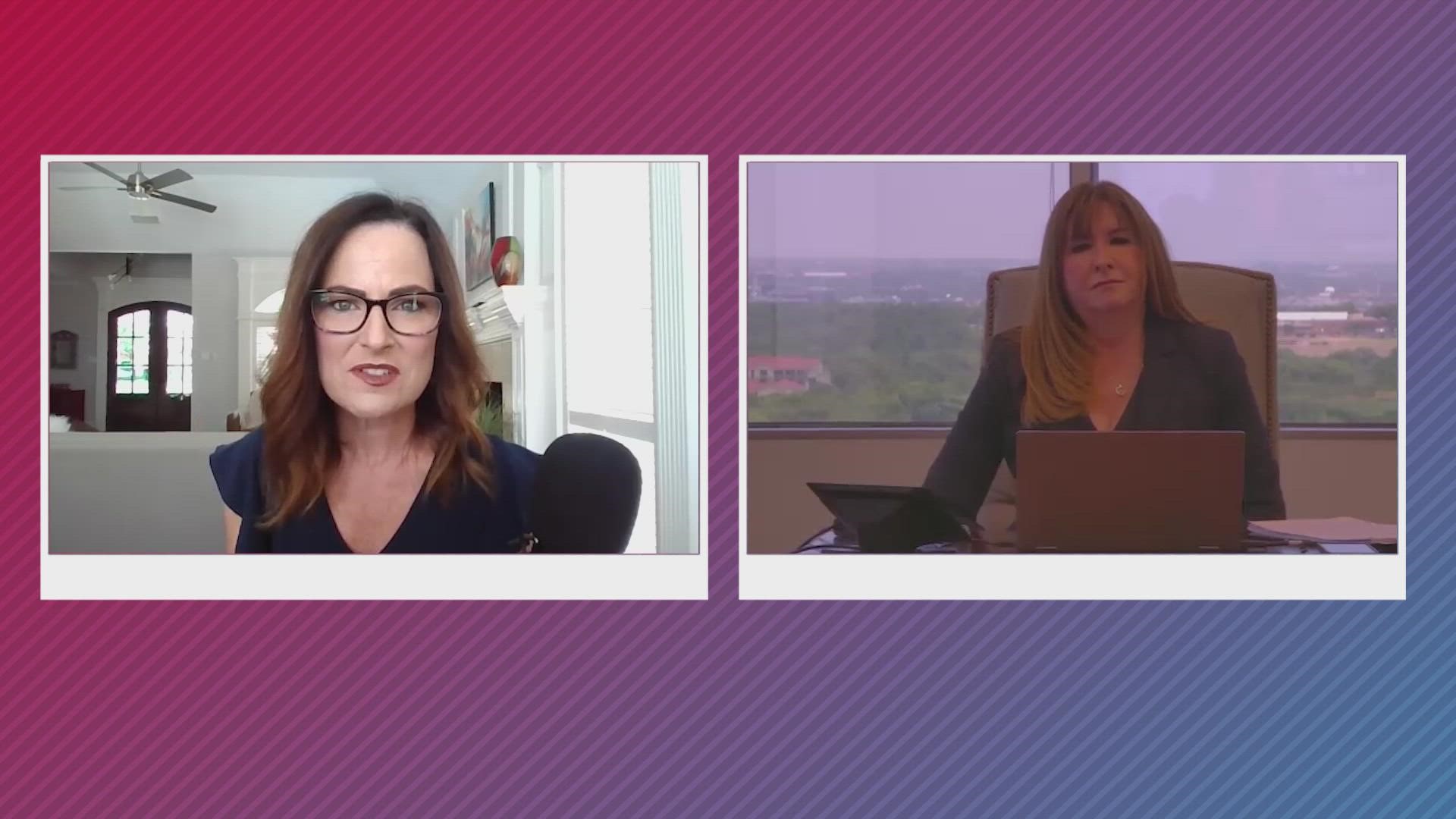DALLAS — Dallas ISD's next superintendent, Dr. Stephanie Elizalde, has seen it all -- anything and everything over her more than three decades of being an educator.
And Elizalde says these days, she never stops thinking about school safety.
“It consumes all of our day. And it consumes all of our nights,” Dr. Elizalde said on Y’all-itics.
Austin ISD, where Elizalde is currently superintendent, educates more than 74,000 students spread out across 125 schools. There are more than 5,500 classroom teachers and more than 1,500 administrators and staff.
And during the district’s recent 15 different graduation ceremonies, Elizalde couldn’t help but think about keeping all those people safe.
“I was scanning as I was on stage the entire time that I was on stage. While I'm shaking hands and wishing our students well, I'm scanning, I'm looking,” she said. “And so, there are periods of time where we get a real joyful moment, and for a few seconds, maybe a few minutes, you don't think about that. And then you're at another event and you're back to thinking about safety again.”
It is the reality of the country in 2022. And following the Uvalde massacre here in Texas, the debate over what to do next is constant yet again.
While Democrats push gun control, Republicans push the “hardening” of schools.
“I don't even like the use of that word hardening. How in the world am I using the word, I mean, in a place that's supposed to be about joy and learning and recess and friendships and cafeteria food that I like or don't like, you know, all of the things you and I got to experience in schools,” Dr. Elizalde told us. “So, even the use of that term, I think, should give us something to think about.”
And in our early release edition of Y’all-itics, Elizalde gave us her thoughts on a number of other proposals also being pushed following Uvalde.
At the recent NRA convention in Houston, U.S. Sen. Ted Cruz said one solution to prevent mass shootings would be requiring a single entrance to every school.
Elizalde and other educators say that just won’t work and would lead to a logistical nightmare. Think about your own trips through TSA at an airport.
“So, imagine then, you know, I've got a high school here in Austin, let's say Bowie High School. There's 3,500 students. One entrance for 3,500 students? What time am I going to start school,” the superintendent asked out loud. “And again, to me these seem very reactive. This is about what do we do after the fact.”
Arming teachers isn’t the way to go either, says Elizalde. She and many other educators say having a weapon around students, particularly as they’re going through puberty, is just dangerous.
Elizalde started her own career as a teacher.
“So, I think back to times when students that are teenagers and haven't matured and have had outbursts. And I think what if they had had access to a gun that was on my hip as I was a classroom teacher,” she mused. “You know, you think about these things having spent 35 years in public education. And there is not one scenario right now that I could say putting a gun on my hip would make me feel safer or would make me feel safer as a superintendent in the school districts that I serve.”
State leaders in Texas have also suggested that schools should hold random, unannounced safety checks on a regular basis.
Elizalde says even that should be questioned because they might cause more harm than good, and she used a recent, real-life example to make her point.
Near the end of the school year last month, there was a heavy police presence across the street from a school, which went on “soft secure,” meaning nobody could go in or out until the situation was resolved.
Elizalde says since it was right after the Uvalde massacre, one teacher interpreted the development as an active shooter on campus.
That never happened. And there was no miscommunication.
The teacher was apparently just scared after Uvalde, and determined to keep her kids safe. But her reaction meant 3 and 4-year-olds scrambled behind tables and the door was barricaded.
“Because of her extreme fear and her determination to ensure that her children were safe, she was prepared to put herself in harm's way. So, can you imagine if we start having these randomly done at our schools? What is the effect on our educators in the classroom, on our children with these random checks,” wondered Dr. Elizalde.
Dr. Elizalde talks about other ideas she has to keep our kids safe and return to the core mission of public education. It is a wide ranging and engaging conversation led by WFAA anchor/reporter Teresa Woodard, who is took over for the Jasons (they are both taking some much needed family time… and we hope you are too during these difficult days). So, be sure to download this episode of Y’all-itics!

